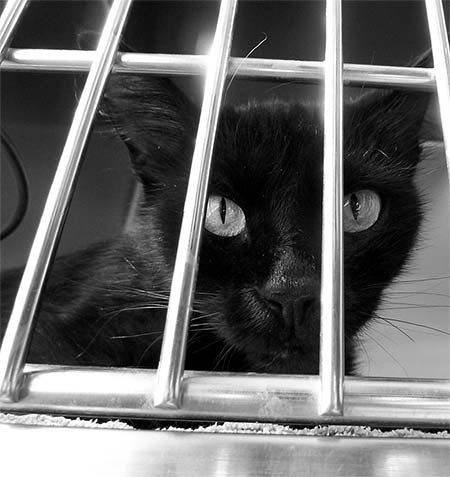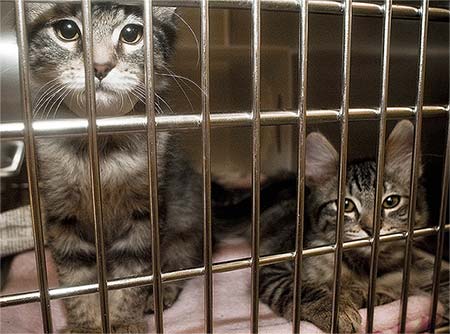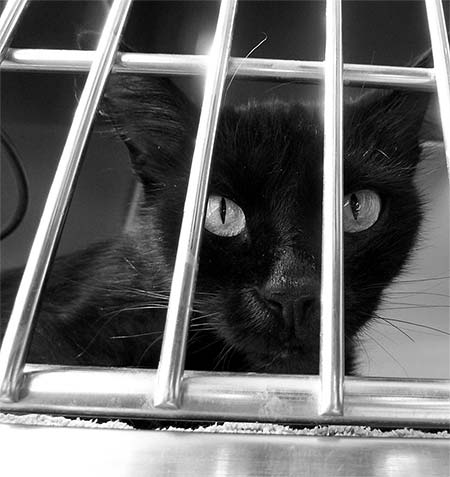And What To Do To Increase Them In Your Favor
The American Humane Society estimates that over 10 million pets get lost every year and, that number seems to split pretty evenly between dogs and cats.
For some insight on what happens to those 10 million lost pets, we can look to a small but scientifically valid study from 2012. The study reported that 93% of all lost dogs found their way home, but only 74% of the lost cats were ever found. Of those lucky dogs, 15% were reunited through the use of an ID tag or microchip but only 2% of cats. That discrepancy can be explained by noting that over 60% of the dogs in the study wore some type of ID tags while only 25% of the cats were reportedly wearing any ID.
Image Copyright Dave Parker
Next, consider the estimates from the American Society for the Prevention of Cruelty to Animals (ASPCA): 6.5 million animals end up in shelters every year. A large but unknown number of those were likely feral or homeless animals that were not lost pets. But we do know that at least 710,000 were. That's the number of lost pets that were lucky enough to be reunited with their families. Sadly, there are likely many thousands more lost pets that for various reasons were not reunited with their families. Instead, after a waiting period, they were made available for adoption or euthanized.
The next data point should be eye-opening for cat owners. Of the 710,000 shelter pets eventually reunited with their families, over 87% of those were dogs! Nationwide, of the 3.2 million cats entering shelters, only 90,000 were found by their owners. Using the ASPCA estimates to extrapolate further, that means 19% of the dogs entering shelters were pets who eventually found their way home compared to less than 3% for cats. Is there a logical for such a big difference?
Image Copyright Christopher Gross
A non-profit organization in Mukilteo, Washington called the Community Cat Coalition wrote an article suggesting several insightful reasons why lost cats that end up at shelters are less likely to be reunited with their families than dogs. They point to a combination of cat behaviors, mistakes owners make when looking, and also, perceptions of the general public. Some key points:
- A lost cat will tend to hide and keep away from humans. Most cats are capable of surviving on their own for quite a while. It may take weeks or months for a cat to allow a human to approach and help them. Many owners have stopped looking by then.
- Owners believe that if they report missing pets at a shelter, they will be contacted if a pet matching that description is brought in. Most shelters have limited resources and cannot always follow up by contacting every owner to report that a tabby cat has been turned in.
- Many shelters only hold animals for three days before offering them for adoption. You would need to check the shelter every few days, possibly for weeks or even months, to be sure that you didn't miss your cat.
- Cats are much less likely to be wearing ID tags. And tags can help your pet beyond the obvious way; a cat wearing a collar and an ID tag doesn't look like a stray. People are much more likely to assist an animal they recognize as someone's pet.
- According to Home Again, the microchip company, only 25% of cats are microchipped but even worse than that, only 58% of those cats have accurate owner information on file. That means that less than 15% of cats have a microchip that can help them get back home.
Image submitted by Tammy Smith
While the Cat Coalition article has some great insights into the factors contributing to the woefully low success rate for reuniting cats and families, the simple answer is right in the study results, more dogs have proper ID than cats.
Armed with that fact, you now have the power to swing the odds wildly in favor of your cat being returned quickly if he or she is ever lost: put a collar and ID tag on your cat, even an indoor cat. The top two reasons that owners cite for not having tags on their cats: my cat is an indoor cat, and my cat doesn't like collars. One study found that 41% of owners searching for missing cats said their cat was an inside only cat. And yes, most cats will quickly adjust to wearing a properly fitted collar. If your cat is bothered by dangling tags, we have solutions for that.
Image submitted by Judy Bennett
Your cat needs to be microchipped as well, and your vet can do that quickly and inexpensively, especially at a regular checkup. If your cat is already chipped, make sure the information in your file would lead someone directly to you (we recently posted an article on exactly how to check your pet's microchip.)
All pet experts agree: ID is the key. It is the fastest, most effective way to get a lost pet back home. And with proper ID, odds are your cat will never end up at a shelter to be adopted ... or worse.

